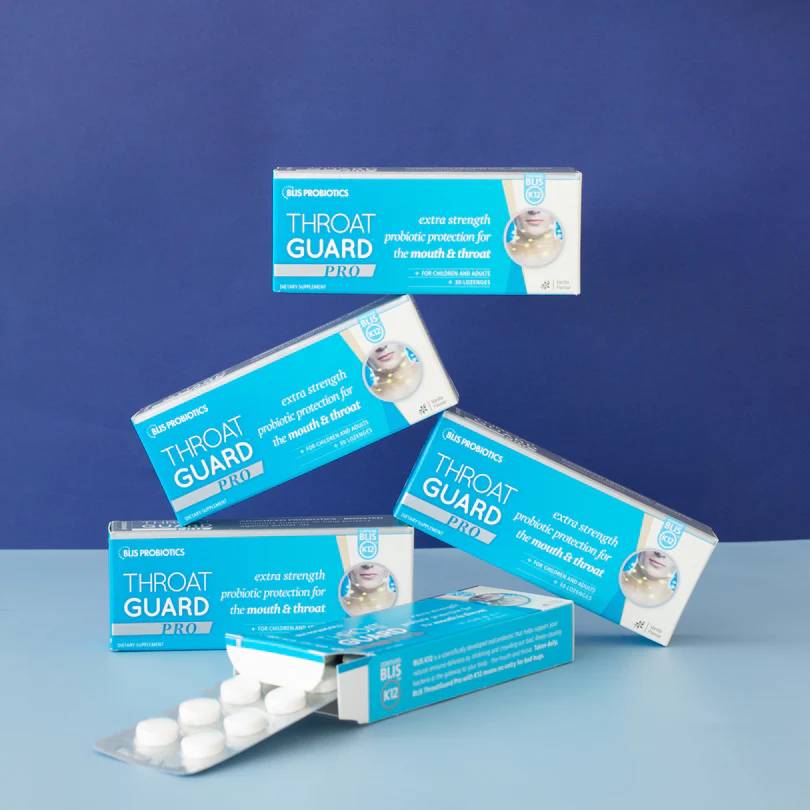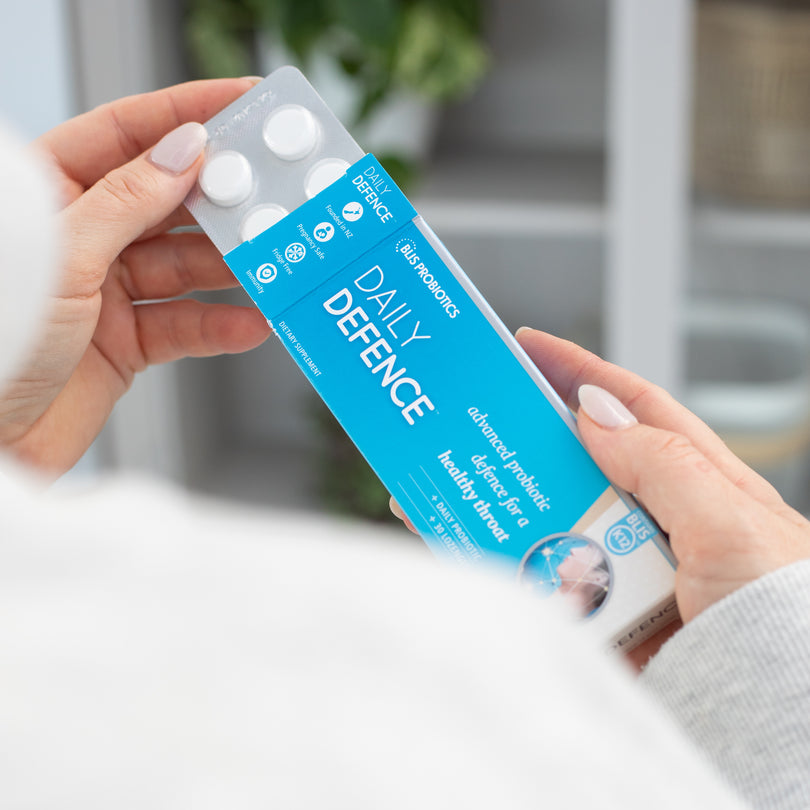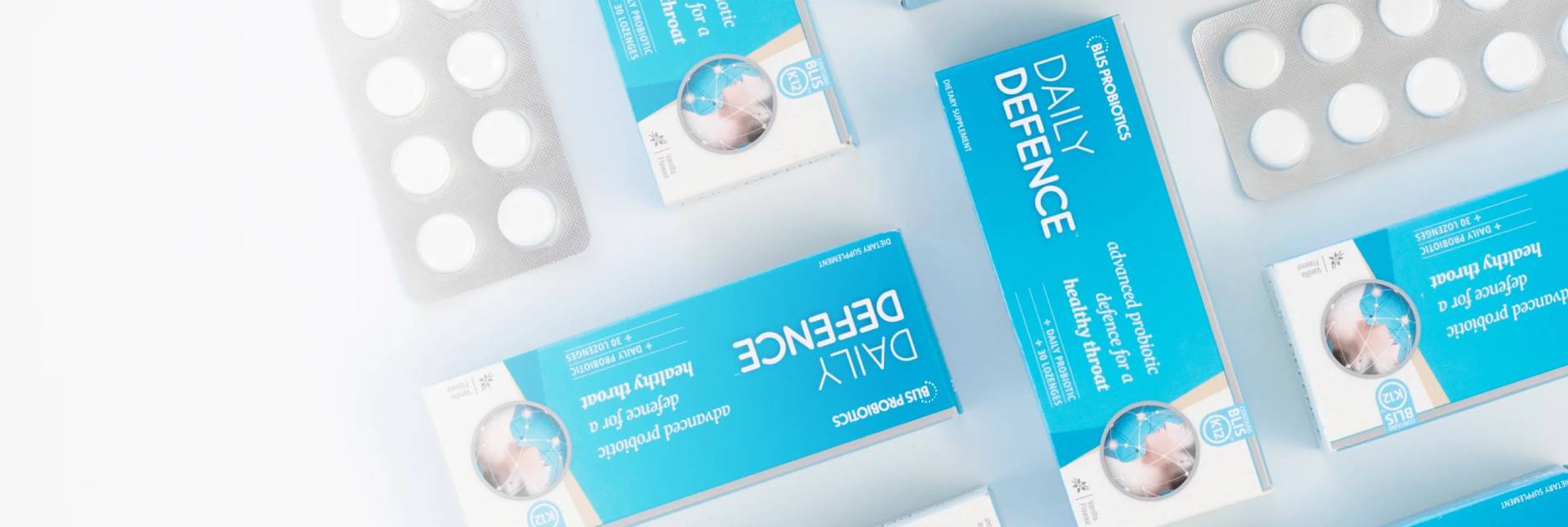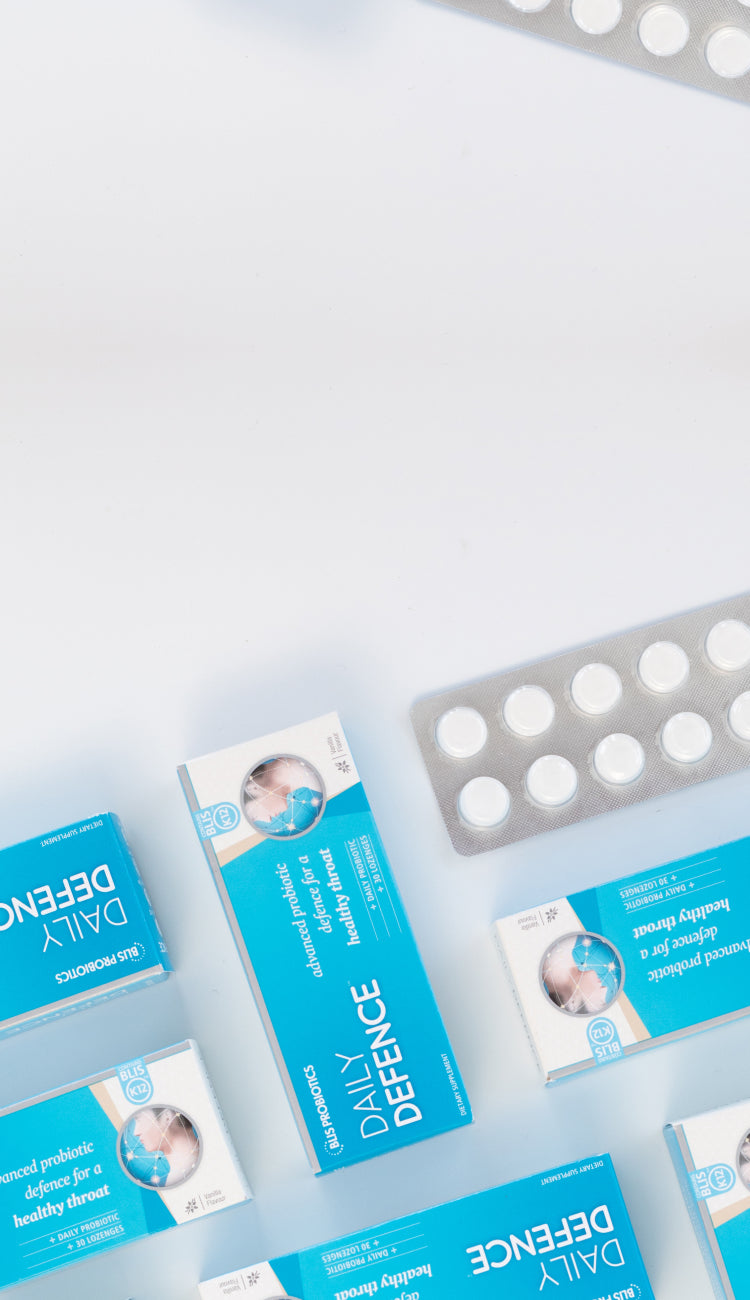Our mouths and throats are the gateway to our body and the first line of defence from many pathogens. Historically, bacterial imbalances of the mouth and throat were treated with antibiotics that killed off both harmful and beneficial bacteria.
BLIS Probiotics believed there was a better way and champions healthy mouths for all through their innovative probiotics for the mouth and throat. BLIS Probiotics are leaders when it comes to applying the science of probiotics to the mouth and throat by adding the good bacteria in to crowd out the harmful bacteria.
The company extended beyond the laboratory and was commercially founded in 2000 with the development of their first two products. An obsession with science is in the company’s DNA, led by their team of microbiologists and rest assured, BLIS Probiotics is backed by 30 years of research and scientific studies.
The evolution of BLIS
- Professor Emeritus John Tagg

The beginning
A 12 year old boy living in Melbourne had his very first encounter with Streptococcus pyogenes – the bacteria that causes a streptococcal (strep) sore throat. Little did he know that this encounter would lead to a lifelong career of research, innovation and improved health outcomes for all.
After a series of strep sore throats that culminated in rheumatic fever, he then had to consume penicillin tablets daily over the following decade to help prevent any follow-up attacks of the disease.
Despite this, he felt that there must be a better and more accessible way to protect throat health, instead of merely treat with antibiotics after an infection had already settled in.

Searching for a better way
In the third year of his Microbiology degree at Melbourne University, John Tagg became influenced by the teachings of Dr Rose Mushin concerning the potential applications of bacterial interference as a targeted and natural means of preventing infection.
John then undertook PhD research at Monash University – the overarching theme of those studies being an exploration of the relationship between S. pyogenes infections and the induction of the autoimmune manifestations of rheumatic fever.

The breakthrough
On September 1, 1969, John discovered that number 22 in this series produced bacteriocin-like inhibitory activity against some other S. pyogenes strains when tested in a deferred antagonism assay.
The inhibitory agent, later given the name streptococcin A-FF22, was the first of the streptococcal bacteriocins to be isolated and characterised.
These laboratory discoveries led to the launching of the Dunedin - based company Blis Technologies Ltd in August, 2000.

The future
Now a distinguished Professor Emeritus, John continues his lifelong passion and work with BLIS Probiotics in our Dunedin laboratory. He has isolated more than 2000 strains of bacteria during his studies and research, and his role now is to continue looking at how those strains can be used to further benefit human health outcomes.




